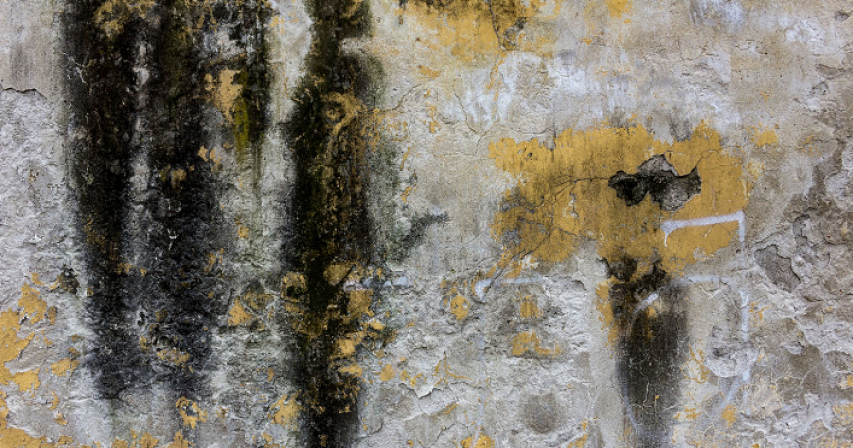How to Treat Mold and Prevent it Growing in Your Property
- 4 years ago

Mold is an absolute menace for property owners; it grows quickly, spreads fast, looks terrible and can be harmful to the health of the property and its inhabitants.
You should act soon when you see mold but also keep in mind your own safety. Never attempt to remove mold in excess or a square meter or that caused by sewage leaks as this may be toxic.
Some mold problems can be dealt with entirely by yourself but sometimes you’ll have to contact a professional to dispose of the mold, or call in a property maintenance professional to repair parts of your property that are damaged.
Luckily there are a few methods for how to treat mold.
What is mold and what does it look like?
Mold is a type of fungus that grows on materials and food. Mold grows in properties because they provide a good environment for it to grow: warm, moist and plenty of food.
Unfortunately for us, this food is often wood, carpet, wallpaper etc. which causes a problem because mold breaks down material, causing damage.
Mold can be many colours, including pink, black, red, green, and brown and can grow in bathrooms, kitchens, bedrooms and anywhere else that moisture can accumulate in.
It often appears as dark stains or spots on surfaces or can appear furry.
Is mold harmful?
In short, yes. Mold can cause a host of respiratory problems including asthma, upper respiratory tract infections, coughing and wheezing.
People most at risk are babies/ children, elderly people, people with respiratory problems such as asthma, people with a weakened immune system and people with skin conditions.
Molds release spores and toxins into the air, which cause these problems if they come in contact with skin or are breathed in.
Evidence has found a link between exposure to high concentrations of certain types of mold and cancer, allergy and infections.
It’s crucial to deal with a mold problem ASAP as it will only keep growing and getting worse unless you solve the problem that’s causing the mold in the first place.
Short term solutions
How you get rid of mold depends on the severity of the mold. The initial response to mold should be to remove it from surfaces its growing on.
However, you should never clean an area of mold larger than 1 metre squared or mold that has been caused by sewage water as this can be very dangerous.
How to treat mold
• Wear protective clothing like goggles, rubber gloves and a face mask covering your nose and mouth - mold is very nasty to breathe in and can cause respiratory problems as mentioned before.
• Remove soft furnishings such as curtains, clothes and cushions and clean them well.
• Use warm, soapy water and wipe the mold off of the surface with a rag. Bin the rags afterwards.
• Wipe the affected surface with a dry, clean rag afterwards.
Important - do not touch the mold with your bare hands and do not use a brush to scrape off the mold as this can disperse the spores.
Mould can also be removed with special sprays like mould wash concentrate.
Long term solutions
Removing mold that has grown in your property is only half the battle.
The most important part of how you get rid of mold is by finding out what’s causing it to grow in the first place.
Most times, the mold is caused by excess moisture in your property, and inadequate ventilation.
Black mold, for instance, forms due to condensation causing a surface to become wet for over 24 hours.
Your best bet for preventing mold forming is to make sure the room has enough ventilation and sufficient airflow. Make sure that you leave the door open to the room for a while and that you open the windows for 20 minutes every morning for example.
Mold likes darkness, so another way of tackling it is to shine light in your room by opening the curtains.
Cleaning and dusting the rooms mold is prone to form in is also really important, as mold doesn’t have a chance to grow.
You can remove moisture from a room by using a de-humidifier too.
Summary
Mold can be a tricky problem to sort out, but it’s incredibly important that you deal with it before it gets out of hand. There are short term fixes but ultimately you should try to strike at the heart of the problem for the sake of keeping your health.
Comments